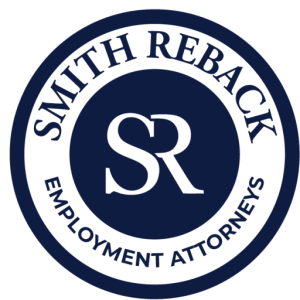Know Your Rights: What to Do if You’re Experiencing Workplace Discrimination
Facing discrimination at work can be deeply distressing. Whether it’s because of your race, gender, religion, age, disability or another protected characteristic, being treated unfairly in terms of hiring, pay, promotion or day-to-day work can undermine both your livelihood and dignity. The good news: the law provides strong protections. This article explains what workplace discrimination means, how to recognize it, what your rights are, and practical steps you should take to protect yourself and pursue redress.
Understanding Workplace Discrimination
What counts as discrimination?
Under federal U.S. law, several statutes prohibit workplace discrimination. For instance, Equal Employment Opportunity Commission (EEOC) explains that the laws they enforce make it illegal to discriminate based on race, color, religion, sex (including pregnancy), national origin, age (40 or older), disability or genetic information. L&E Global+3EEOC+3EEOC+3
Examples of discriminatory practices include:
- Refusing to hire someone because of their national origin. EEOC+1
- Denying a promotion to someone due to their age. L&E Global+1
- Paying someone less because of their sex. Federal Trade Commission
- Subjecting someone to harassment because of disability or religion. EEOC+1
Protected categories and employer coverage
Most of the core federal protections apply under laws like Title VII of the Civil Rights Act of 1964, Age Discrimination in Employment Act (ADEA), Americans with Disabilities Act (ADA), and others. USCIS+1
Also:
- Employers with 15 or more employees are generally covered under Title VII. Legal Information Institute+1
- State laws like California’s Fair Employment and Housing Act provide additional protections that cover smaller employers.
Harassment and retaliation
Discrimination is not only about hiring or firing; it also includes hostile work environments or retaliation. The EEOC emphasizes that it is illegal to harass someone because of a protected characteristic, or to retaliate when someone reports or participates in an investigation of discrimination. EEOC+1
Recognizing Discrimination in Practice
Signs of discriminatory treatment
Here are some clear red flags:
- Adverse action (termination, demotion, pay cut) taken because of your protected characteristic.
- Being excluded from assignments, meetings, or projects while similarly situated employees without the protected trait are not.
- Employer making derogatory remarks about your race, religion, sex, age, disability, etc.
- Your employer applying rules differently to you compared to others.
- Harassment making the workplace hostile or intimidating.
Timing, pattern and context matter
Just as in retaliation cases, establishing discrimination often requires showing a pattern or timing of adverse actions. If, after you mention your religion or disability, you are suddenly passed over for promotion or receive bad reviews, that may raise a strong suspicion of discrimination.
Legitimate business reasons vs. discrimination
Employers can take lawful adverse action if they have legitimate, non-discriminatory reasons (performance issues, layoffs). But if the decision is motivated by a protected characteristic or a discriminatory motive, it violates laws. The key question: Was the protected characteristic a factor?
Your Legal Rights When Discrimination Occurs
If you succeed in a discrimination claim, you may be entitled to:
- Back pay (lost wages), front pay (future lost wages)
- Compensation for emotional distress and other non-economic harm
- Reinstatement
- Attorney’s fees and costs
- Policies changed at your employer.
Deadlines and filing process
Timeframes matter:
- Typically, complaints must be filed with the EEOC within 180 days of the discriminatory act; some states extend that to 300 days. EEOC+1
- Employer size and local agency involvement can affect deadlines.
- It’s important to act quickly once you recognize discrimination.
Steps to Take If You’re Experiencing Workplace Discrimination
Here’s a step-by-step guide you can follow:
- Document everything
- Save all relevant emails, messages, memos, performance reviews, and any statements from supervisors or colleagues.
- Write down dates, times, locations, conversations and identify any witnesses.
- Keep a copy of your job description, promotion criteria, and past evaluations (to compare how you are treated vs. others).
- Understand your employer’s internal processes
- Review your company’s employee handbook, policy on discrimination/harassment, and the procedure to report discrimination.
- Report the discrimination internally (to HR or designated officer) unless you believe doing so would put you at further risk—be mindful of your jurisdiction and specific circumstances.
- File a formal complaint with your employer
- Provide written notice to HR describing the discriminatory act(s), who was involved, when and how you were affected.
- Request a written response or acknowledgement.
- Consider filing with a regulatory agency
- Contact the EEOC (or state equivalent). EEOC+1
- Many states have a Fair Employment Practices Agency (FEPA) with similar functions.
- Ask about deadlines for filing, and whether you need to complete internal company processes first.
- Consult an employment lawyer
- A lawyer can assess the strength of your claim, advise you on internal vs external options, and help protect your rights.
- Before signing any severance, separation or nondisclosure agreement, get legal review.
- Avoid making rash decisions
- Don’t resign impulsively without understanding your rights, voluntary resignation can complicate claims.
- Maintain performance and professionalism, don’t give your employer a legitimate non-discriminatory reason to dismiss your claim.
- Stay organized and watch deadlines
- Keep a timeline of events: date you reported, date you experienced adverse action, date you filed anything externally.
- Keep all original documents safe; make backups.
- Do not destroy or hide anything that could be relevant.
How an Employment Lawyer Can Help
An employment lawyer brings strategic value:
- They evaluate whether your circumstances meet the legal definitions of discrimination, harassment or retaliation.
- They guide you through internal reporting and external agency filings.
- They help gather and preserve evidence, identify comparators (others treated differently) and build a case.
- They may negotiate settlement or represent you in litigation if needed.
- They help you understand how state and federal laws interact (especially if you work in a place like California with extra protections).
How an Employment Lawyer Can Help
An employment lawyer brings strategic value:
- They evaluate whether your circumstances meet the legal definitions of discrimination, harassment or retaliation.
- They guide you through internal reporting and external agency filings.
- They help gather and preserve evidence, identify comparators (others treated differently) and build a case.
- They may negotiate settlement or represent you in litigation if needed.
They help you understand how state and federal laws interact (especially if you work in a place like California with extra protections).
How an Employment Lawyer Can Help
An employment lawyer brings strategic value:
- They evaluate whether your circumstances meet the legal definitions of discrimination, harassment or retaliation.
- They guide you through internal reporting and external agency filings.
- They help gather and preserve evidence, identify comparators (others treated differently) and build a case.
- They may negotiate settlement or represent you in litigation if needed.
- They help you understand how state and federal laws interact (especially if you work in a place like California with extra protections).
Preventing Discrimination: What Employees Can Do
Experiencing workplace discrimination is not just unfair, it may be illegal. You deserve a workplace where you are treated fairly, respectfully, and without bias. Recognizing discrimination, documenting what’s happening, understanding your rights, and following the correct channels can help you move from a place of vulnerability to one of empowerment.
If you believe you are being discriminated against, don’t wait. Protect your rights now, seek guidance and take action.
Contact [Smith & Reback Law] for a confidential consultation if you believe you’re experiencing workplace discrimination.
- Email: Intake1818@smithrebacklaw.com
- Phone: (213) 433-1818
Address: 16255 Ventura Boulevard, Suite 600, Encino, California 91436



